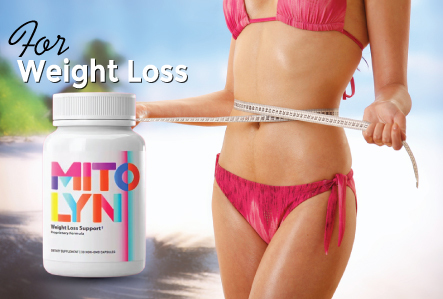How do I know if I’m eligible for a weight loss procedure?

Weight loss procedures have become a trusted solution for those struggling to achieve their ideal body shape through traditional means like dieting and exercise. With the rise of advanced surgical and non-surgical treatments, people in Islamabad are increasingly turning to professional help for safe, effective fat reduction. But before undergoing any treatment, a crucial question arises: How do I know if I’m eligible for a weight loss procedure?
✍️ Losing weight isn’t just about cutting calories—it’s about building healthy habits. Our in-depth guide on weight loss covers proven diet strategies, exercise routines, and mindset shifts that can help you achieve sustainable results without falling for quick-fix solutions that rarely last.
Whether you're considering liposuction, tummy tuck, cryolipolysis, or radiofrequency-based therapies, eligibility depends on various factors like your current health, BMI, lifestyle, and treatment expectations. Clinics offering Weight Loss Treatment in Islamabad follow strict medical screening protocols to ensure the safety and suitability of each individual.
Understanding the Purpose of Weight Loss Procedures
Weight loss procedures are designed to reduce localized fat, contour the body, or in more advanced cases, help with medical obesity. They are not one-size-fits-all solutions and should not replace a healthy diet or active lifestyle. Instead, these treatments work best when used as tools to target stubborn fat areas or to complement ongoing weight loss efforts.
Some procedures remove fat through surgical intervention (like liposuction or bariatric surgery), while others use non-invasive technology (like cryolipolysis or RF therapy) to break down fat cells without incisions. Your eligibility depends on how your body, health history, and goals align with the method you’re considering.
Key Factors That Determine Your Eligibility
1. Your Current Body Mass Index (BMI)
Your BMI is one of the first indicators professionals evaluate when considering any weight loss procedure.
BMI under 30: Usually eligible for non-surgical fat reduction procedures like fat freezing, ultrasound cavitation, or RF treatments.
BMI between 30–40: May be considered for more intensive surgical procedures like liposuction or gastric sleeve surgery if other conditions are favorable.
BMI over 40: Likely candidates for medical weight loss programs or bariatric surgery under strict supervision, often for health-related concerns like diabetes or hypertension.
A realistic expectation is key: if you’re significantly overweight or obese, you may be advised to lose some weight before undergoing cosmetic procedures to ensure safety and better results.
2. Stubborn Fat vs. General Weight Loss Needs
Another critical factor is the type of fat you're dealing with. Are you struggling with a few resistant bulges that won’t go away despite your best efforts, or are you looking for a large-volume fat reduction?
Localized fat in areas like the belly, thighs, arms, or love handles is ideal for non-surgical treatments such as cryolipolysis or mesotherapy.
Excessive fat or loose skin, especially after major weight loss or pregnancy, may be better treated with liposuction or tummy tuck surgery.
Medical weight loss may be more appropriate if you have widespread obesity or metabolic issues.
Understanding the nature of your fat deposits will help professionals tailor the most effective solution for your body.
3. Your Overall Health Status
Before undergoing any fat reduction procedure, your general health will be assessed. You may be asked about:
Blood pressure and cardiovascular health
Diabetes or thyroid disorders
Blood clotting conditions or anemia
Pregnancy or breastfeeding status
Previous surgeries or ongoing medications
Patients with uncontrolled medical conditions may not be ideal candidates for surgery and might be referred to less invasive treatments or to a specialist before proceeding.
4. Your Skin Elasticity and Muscle Tone
Skin elasticity plays a vital role in achieving optimal results, especially for non-surgical methods. If your skin is too loose or saggy, fat reduction alone may not provide the toned appearance you’re expecting.
Good skin elasticity: Ideal for fat freezing or RF contouring, as the skin naturally adapts to new contours.
Poor elasticity or muscle separation: Better suited for surgical treatments like tummy tucks, which involve tightening skin and underlying muscles.
During your consultation, the practitioner will assess your skin condition to recommend the most suitable treatment type.
5. Your Lifestyle and Commitment
While weight loss procedures can provide visible results, they are not substitutes for a healthy lifestyle. To maintain long-term outcomes, you must be committed to post-procedure care, which includes:
Staying physically active
Following a balanced, nutritious diet
Staying hydrated
Avoiding significant weight fluctuations
Patients who are ready to make lifestyle changes and follow through with aftercare protocols are more likely to maintain their results and benefit fully from the procedure.
6. Your Goals and Expectations
One of the most overlooked but crucial aspects of eligibility is your mindset. Are your goals realistic? Do you understand what the procedure can and cannot do?
Non-surgical treatments can reduce inches, enhance contour, and improve your appearance, but they won’t result in significant weight loss.
Surgical treatments can provide more dramatic changes but require downtime and proper post-operative care.
Candidates who understand the scope of the treatment and have realistic expectations are far more satisfied with their outcomes.
How to Know for Sure?
The only way to truly confirm your eligibility is to schedule a detailed consultation with a qualified cosmetic or bariatric specialist. They will perform:
A physical assessment
Body composition analysis
Medical history review
Blood tests or imaging (if needed)
Discussion of goals and preferred outcomes
Based on this information, you will receive a personalized treatment plan designed to fit your specific body type and desired results.
Why the Right Clinic Matters
Choosing a clinic with an experienced team and access to both surgical and non-surgical technologies ensures you get unbiased advice and effective treatment. A well-equipped clinic will prioritize your safety, long-term wellness, and aesthetic goals while guiding you through every stage, from assessment to aftercare.
Conclusion
So, how do you know if you’re eligible for a weight loss procedure? It depends on your BMI, health status, fat distribution, skin condition, and expectations. Surgical and non-surgical options are both effective, but they cater to different needs. The best way to find out your suitability is to undergo a professional evaluation with an experienced specialist who can guide you toward the right approach.
Note: IndiBlogHub features both user-submitted and editorial content. We do not verify third-party contributions. Read our Disclaimer and Privacy Policyfor details.







